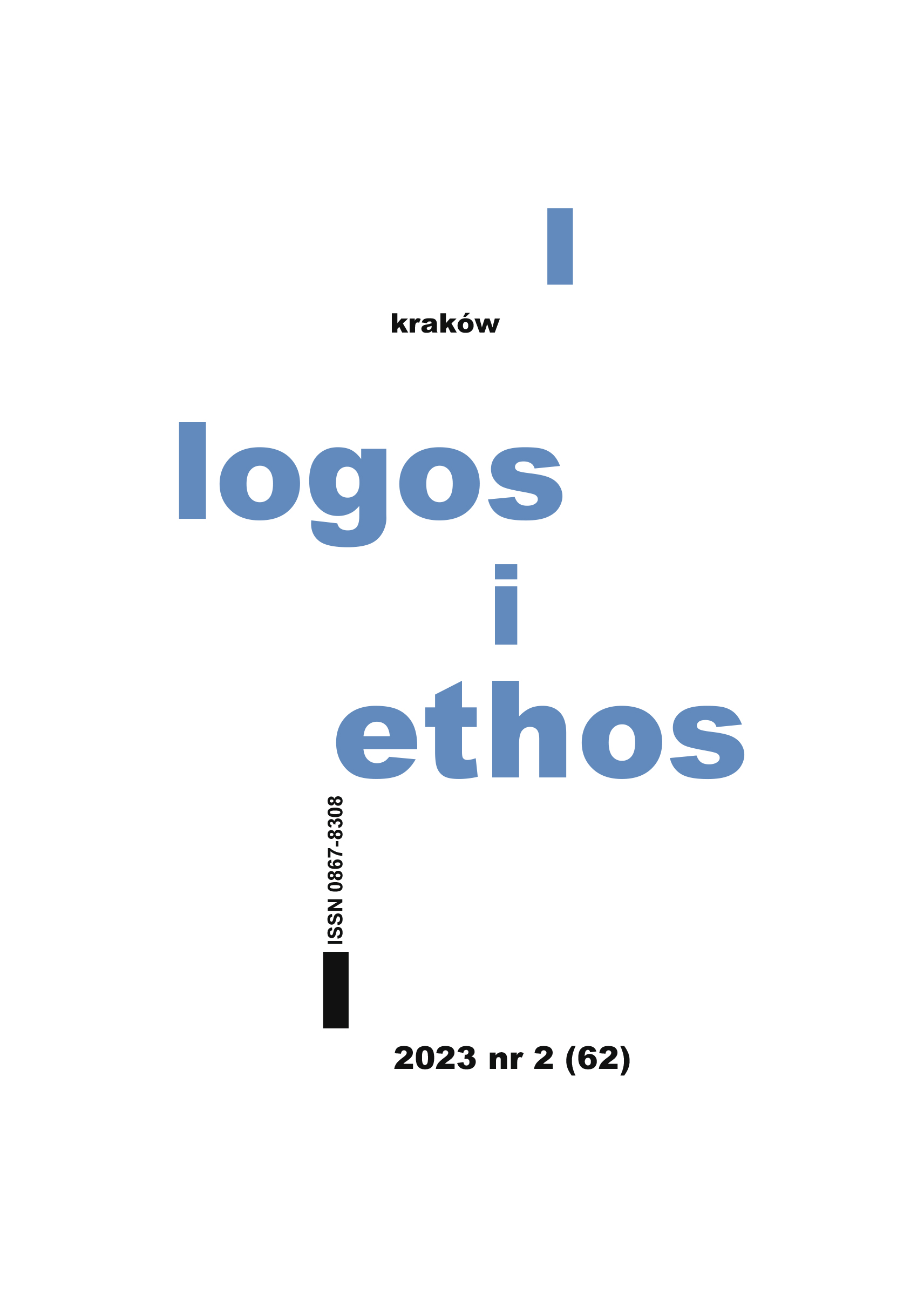The concept of freedom in the thought of St. Augustine
DOI:
https://doi.org/10.15633/lie.62201Keywords:
St. Augustine, free will, freedom, autonomy, grace, volitionAbstract
The article discusses St. Augustine’s arguments for the existence of free will and its theological contexts in relation to human nature. The bishop of Hippo refers to the philosophical works of Plato and Plotinus as well as texts from the New Testament, and in justifying the existence of free will points to the direct consciousness of man. Augustine was deeply convinced that this intrinsic action is necessary for valuation and therefore for moral judgment resulting from the choice between good and evil. Without free will, man would not be himself, it is the condition of humanity and the foundation of responsibility. In his writings, the author distinguished between the freedom from autonomy and self-determination; independent acts of will that are an ontological feature of human being. He believed that the ultimate source of man’s inner freedom is God. Augustine was also aware that human freedom is imperfect, which manifests itself in ethical dilemmas related to decision-making. The human freedom is never absolute, as a result of man’s fallen nature, which God has bestowed with the grace of goodness in the form of the gift of free will. Among other things, this accounted for Augustine’s rejection of the concept of grace proposed by Pelagius, who denied its supernatural character claiming that it is given according to merit. Many scholars have attempted to interpret the issue of how grace affects the human will. Their statements seem to support the conclusion in light of which freedom of the will is not abrogated due to the action of grace.
References
Audi R., The Cambridge Dictionary of Philosophy, second ed. R. Audi, Cambridge University Press, 1999.
Augustinus, Confessiones, in: Sancti Aurelii Augustini […] opera omnia […], ed. J.-P. Migne, t. 1, Parisiis 1877 (Patrologiae Cursus Completus. Series Latina, 32).
Augustinus, Contra Felicem, in: Sancti Aurelii Augustini […] opera omnia […], ed. J.-P. Migne, t. 8, Parisiis 1865 (Patrologiae Cursus Completus. Series Latina, 42).
Augustinus, Contra Iulianum, in: Sancti Aurelii Augustini […] opera omnia […], ed. J.-P. Migne, t. 10, p. 1, Parisiis 1965 (Patrologiae Cursus Completus. Series Latina, 44).
Augustinus, De catechizandis rudibus, in: Sancti Aurelii Augustini […] opera omnia […], ed. J.-P. Migne, t. 6, Parisiis 1865 (Patrologiae Cursus Completus. Series Latina, 40).
Augustinus, De duabus animabus, in: Sancti Aurelii Augustini […] opera omnia […], ed. J.-P. Migne, t. 8, Parisiis 1865 (Patrologiae Cursus Completus. Series Latina, 42).
Augustinus, De libero arbitrio, in: Sancti Aurelii Augustini […] opera omnia […], ed. J.-P. Migne, t. 1, Parisiis 1877 (Patrologiae Cursus Completus. Series Latina, 32).
Augustinus, De natura et gratia, in: Sancti Aurelii Augustini […] opera omnia […], ed. J.-P. Migne, t. 10, p. 1, Parisiis 1965 (Patrologiae Cursus Completus. Series Latina, 44).
Augustinus, De quantitate animae, in: Sancti Aurelii Augustini […] opera omnia […], ed. J.-P. Migne, t. 1, Parisiis 1877 (Patrologiae Cursus Completus. Series Latina, 32).
Augustinus, De Trinitate, in: Sancti Aurelii Augustini […] opera omnia […], ed. J.-P. Migne, t. 8, Parisiis 1865 (Patrologiae Cursus Completus. Series Latina, 42).
Augustinus, De vera religione, in: Sancti Aurelii Augustini […] opera omnia […], ed. J.-P. Migne, t. 3, p. 1, Parisiis 1865 (Patrologiae Cursus Completus. Series Latina, 34).
Copleston F., A history of philosophy, vol. 1: Greece and Rome, Doubleday, New York–London 1993.
Gilson É., Wprowadzenie do nauki świętego Augustyna, PAX, Warszawa 1953.
Ingarden R., Książeczka o człowieku, Wydawnictwo Literackie, Kraków 1975.
Kasia A., Św. Augustyn, Wiedza Powszechna, Warszawa 1960.
Klemm B., Free will debates: simple experiments are not so simple, “Advances in Cognitive Psychology” 6 (2010) issue 6, p. 47–65.
Kowalczyk S., Człowiek i Bóg w nauce Świętego Augustyna. Studia
i szkice, Ośrodek Dokumentacji i Studiów Społecznych, Warszawa 1987.
Libet W. R., Unconscious cerebral initiative and the role of conscious will in voluntary action, “The Behavioral and Brain Sciences” 8 (1985) issue 4, p. 529–539, https://doi.org/10.1017/S0140525X00044903.
Mann E. W., Augustine on Evil and Original Sin, in: The Cambridge Companion to Augustine, eds. D. V. Meconi, E. Stump, Cambridge University Press, 2001.
Mausbach J., Die Ethik des hl. Augustinus, vol. 1, Herder, Freiburg im Breisgau 1929.
Tatarkiewicz W., Historia filozofii, vol. 1: Filozofia starożytna
i średniowieczna, PWN, Warszawa 2003.
The International Bible Society (https://www.biblica.com).
Tischner J., Myślenie według wartości, Znak, Kraków 2002.
Trapè A., Święty Augustyn. Człowiek, duszpasterz, mistyk, transl. J. Sulowski, PAX, Warszawa 1987.
Downloads
Published
Issue
Section
License

This work is licensed under a Creative Commons Attribution 4.0 International License.
Authors who publish with this journal agree to the following terms:
- Authors retain the copyright and full publishing rights without restrictions, and grant the journal right of first publication with the work simultaneously licensed under a Creative Commons Attribution 4.0 International License that allows others to share the work with an acknowledgement of the work's authorship and initial publication in this journal.
- Authors are able to enter into separate, additional contractual arrangements for the non-exclusive distribution of the journal's published version of the work (e.g., post it to an institutional repository or publish it in a book), with an acknowledgement of its initial publication in this journal.
- Authors are permitted and encouraged to post their work online (e.g., in institutional repositories or on their website) prior to and during the submission process, as it can lead to productive exchanges, as well as earlier and greater citation of published work (See The Effect of Open Access).

